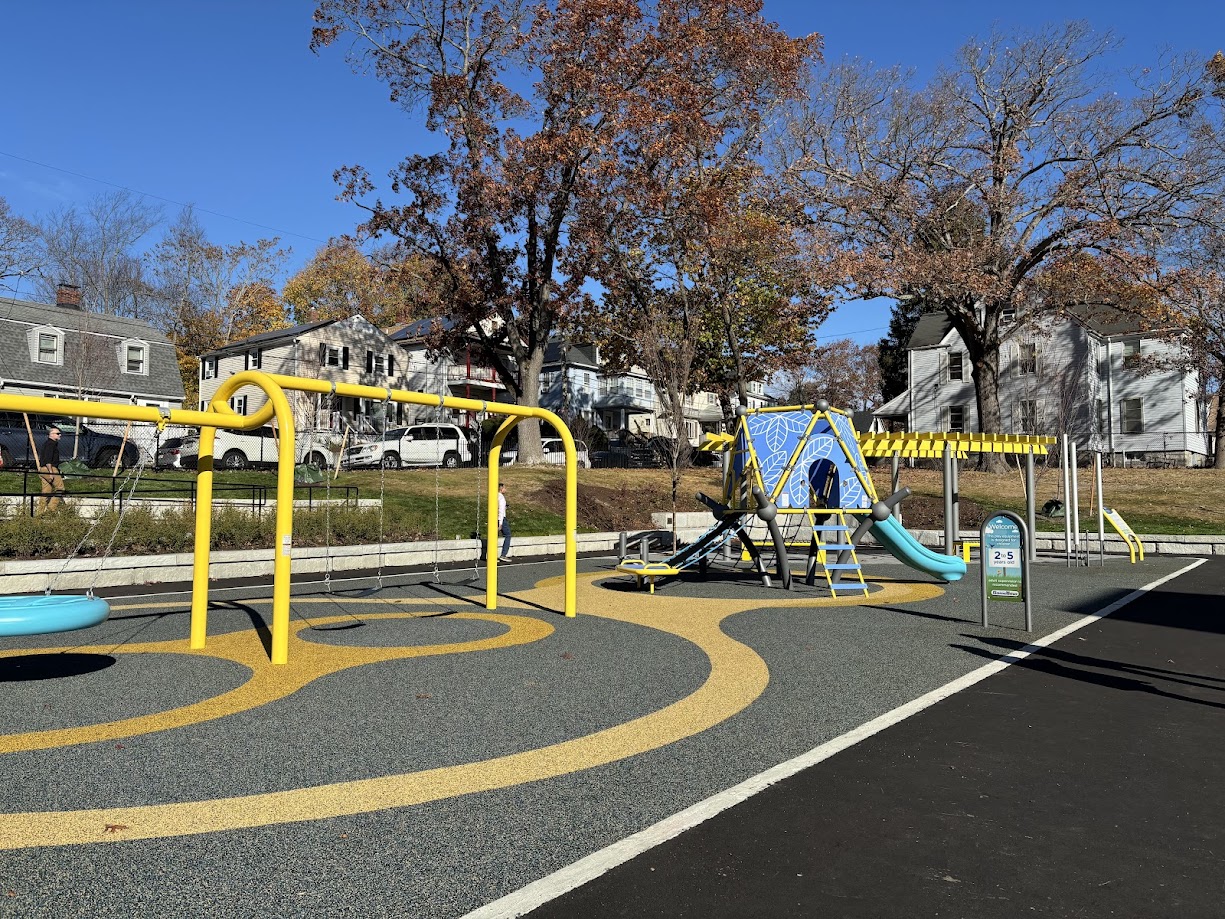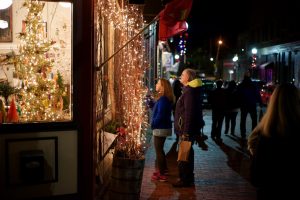
Valenta: Boston’s first Community Schoolyard a greenspace model
Everyone deserves a great park. This belief is at the core of Trust for Public Land’s (TPL) and Boston Parks and Recreation Department’s (BPRD) work to create James J. Chittick Elementary’s new schoolyard and park, the first Community Schoolyard® project in Boston. Students, teachers, administrators, and Hyde Park community members can now run, play, and gather in this new, climate-resilient schoolyard.
Chittick Elementary School students and nearby residents lacked access to nearby public green space, and with increasingly hot summers, the black asphalt playground often became unbearably hot and was underutilized outside of school hours. Over the past six years, TPL and BPRD, along with Boston Public Schools, community members and local partners worked together to reimagine this area as a dynamic, community-focused schoolyard that is open to all and integrates green infrastructure to mitigate the effects of urban heat. Together with students of Chittick Elementary and residents, TPL and BPRD crafted a vision to transform the space into a state-of-the-art schoolyard and park.
Today, over 28 million kids do not have a park within a 10-minute walk of home. In addition, 36% of the nation’s 50.8 million public school students attend school in areas that are 1.25 degrees Fahrenheit hotter or more, on average, than the surrounding town or city — a phenomenon known as the heat island effect. In some communities, the difference between a schoolyard and its surrounding environment can exceed 20 degrees. This reality is why TPL and BPRD have been committed to completing the schoolyard and tackling both park equity and climate resilience.
Thanks to public funding and donations from generous supporters, Chittick’s new schoolyard features a wide range of amenities. Design and construction was made possible with the support of $1.5 million in Community Preservation Act (CPA) funds, which includes new play equipment, an ADA-accessible walkway entrance, a running track, kickball court and painted graphics,19 new trees, an outdoor classroom, absorbent surfaces to reduce flooding, and the city’s second porous basketball court – all designed in partnership with Chittick students.
At TPL, we know that Community Schoolyards® in cities like New York City, Philadelphia, and Atlanta provide equitable access to quality green spaces for students and entire communities. That is why the partnership between BPRD and TPL was a natural fit. Working together with cities to create these spaces allows students and residents to connect outdoors in a place where they feel safe, improving their overall mental and physical well-being.
There is also a growing body of evidence that links access to green space with improved educational outcomes. Research conducted in 2009 with Boston Public Schools found that schools with high-quality open spaces promoted better math MCAS scores, fewer suspensions, and greater student and teacher attendance than schools without such spaces.
The effort to improve Chittick Elementary’s schoolyard reflects a movement that is transforming communities across America at a time of increased loneliness and isolation. A recent TPL report found that residents of cities with high-quality parks were more socially connected and engaged with their neighbors than those with less robust park systems.
Under the leadership of Mayor Michelle Wu, BPRD has prioritized investments in its parks to provide accessible, high-quality parks that are community hubs and feel like home to Boston residents. Boston is committed to creating climate-resilient spaces that help mitigate extreme heat with green space and shade to keep students cool.
BPRD is committed to enhancing its parks, promoting a connection to the outdoors, and strengthening community bonds. That is why TPL and BPRD have been working together to make the Chittick Schoolyard more inclusive and engaging for the entire community. This commitment includes advocating for amenities and features that reflect Boston’s diverse populations, from cultural art to water play, all based on the priorities of the community.
Community Schoolyards® projects address climate challenges, reduce outdoor inequity, and create dynamic, learning environments for all. This new schoolyard marks a new chapter in Boston’s journey toward greater park equity, enhancing and protecting greenspace, and promoting climate resilience.
Investing in our local schoolyards — through increased funding, time, and creativity — will yield dividends far beyond new basketball courts.
Jodi Valenta is the Massachusetts Program Director for Trust for Public Land.

